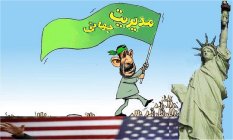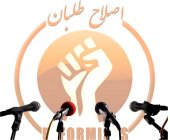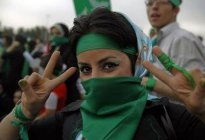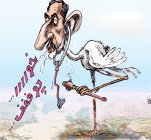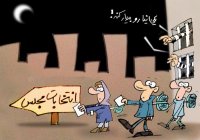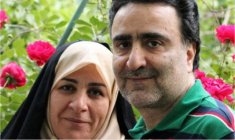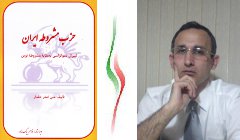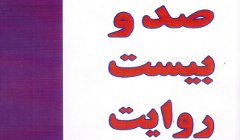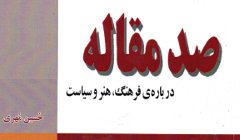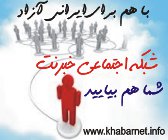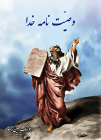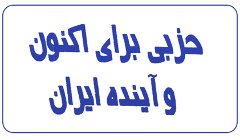A new U.S. intelligence assessment suggests that Iran may have halted its nuclear weapons program in 2003 and that its weapons program remains on hold. This revelation has created much consternation in Congress on both sides of the aisle. Indeed, despite the latest estimate, other intelligence reports and Iran's own statements point to Tehran possibly acquiring a bomb before the end of this decade. Hence the discussion regarding the possible nuclear intentions of the Iranian government remains a crucial one.
But Iranian intentions must be examined using a deeper context that takes into account the ideological basis of the Iranian Revolution and the messages given by the Iranian government not to the West, but to the Iranian people themselves. This is why we recently went before Congress to testify about Iranian textbooks.
The content of Iran's school textbooks, which was recently analyzed by the Center for Monitoring the Impact of Peace, adds an important dimension to the Iran debate. Iranian students from the first grade onward are taught in their educational curriculum that they must fight to bring about a global Islamic victory or accept collective martyrdom. These books paint an alarming picture of a regime that divides the world between "good" and "evil" forces that are destined to clash.
According to the textbooks, a war between the two forces is inevitable. Iranians are therefore tasked with a religious mission to fight "evil" until it is eradicated, or, until the "good" � the rule of Islam � will triumph.
The "evil" camp is comprised of the entire West under the leadership of the United States. "Now, in order to continue the Islamic Revolution," reads a passage in a seventh-grade textbook, "it is our duty to continue with all [our] power our revolt against the Arrogant Ones and the Oppressors, and not cease until � the redeeming message of 'there is no God except Allah' are realized in the whole world." This type of war is called "Initiative Jihad" (Jehad-e Ebtedayi), and it is further explained in an eighth-grade textbook: "Either we shake one another's hand in joy at the victory of Islam in the world, or all of us will turn to eternal life and martyrdom. In both cases, victory and success are ours."
The books also indoctrinate students to prepare for war by encouraging martyrdom. The spirit of martyrdom-seeking is inculcated in the minds of youths through various means. This includes verses from the Koran, quotes from Shi'ite imams, stories and poems that glorify past and present martyrs and reading aloud martyrs' wills that are also posted on school walls. One horrific outcome of indoctrinating Iranian youths with this type of literature occurred during the Iran-Iraq war, when children chanted quotes from these books while running toward minefields. More than 500,000 Iranian children participated in that war and more than 36,000 of them were "offered to the revolution," a fact that is quoted with pride in a book for grade 10.
Despite these findings, Iranian President Mahmoud Ahmadinejad � who also heads the country's Council of Cultural Revolution � recently stated that the Iranian educational system appears too secular and that he plans to make universities more Islamist. One can only imagine what such an "educational reform" may produce.
As the United States and Europe further assess the nuclear standoff with Iran, they should seriously consider these statements. The pending nuclear issue is a symptom of a much broader problem that will not disappear unless Iran is forced to reconsider its attitudes. The international community must continue to apply every possible pressure in order for Iran to do so, and this must be done first and foremost for the sake of Iran's own children.
Nir Boms is a member of the board of advisers at the Center for Monitoring the Impact of Peace and vice president of the Center for Freedom in the Middle East. Shayan Arya is an Iranian activist and associate researcher at Center for Monitoring the Impact of Peace.






















